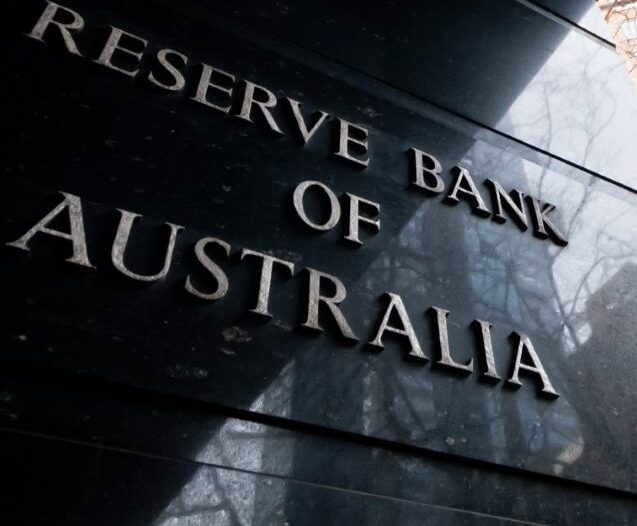Well, at least he apologised. The Reserve Bank of Australia’s Governor, Philip ‘high interest rate’ Lowe, regrets promising Australians that interest rates would remain low until 2024 at least:
‘I’m sorry that people listened to what we said and then acted on that and now find themselves in a position they don’t want to be in.
‘Looking back, we would have chosen different language. People did not hear the caveats. I thought it was clear…but the community didn’t think it was clear. Well, they thought it was clear we weren’t raising rates until 2024. That’s a failure on our part.’
Oopsies.
Of course, I personally blame Australians’ faith in the central bank in the first place. It’s not like central planning works in any other context either. We wouldn’t stomach having politicians control electricity prices or watermelon prices. And we’d be able to clearly articulate why. They’d muck it up somehow. I mean, look at the NHS!
But, for some reason, we believe that price fixers at the RBA should set the interest rate. Beats me why…
But you know what, it’s not the 2024 promise that I find fascinating. It’s this bit of the now infamous promise (emphasis added):
‘The Board will not increase the cash rate until actual inflation is sustainably within the 2 to 3 per cent target range. For this to occur, wages growth will have to be materially higher than it is currently.’
Now that inflation is more than triple the 2% target, we can examine whether it was wage growth that triggered inflation.
The answer is no. Wage growth remained very low, even as inflation has spiked.
In other words, not only was the Reserve Bank wrong to promise interest rates would remain low until 2024 in the first place…not only was it wrong about when inflation would occur and how much…but it was also wrong about how and why inflation could occur at all.
This is a bit of a problem, given it’s their job to manage inflation. They don’t even know what causes it! Which is ironic because they’d only have to look in the mirror…
Now, you might think that central bankers would take a breath, reconsider their assumptions and models, resign ignominiously (without pensions or with inflation-unadjusted pensions), and shut down the RBA altogether. That’s what’d happen in the private sector, after all. The place would’ve gone bust long ago given its performance.
But that’s not how public institutions work. The worse things get because of their policies, the more there is for them to do. In this case, the more inflation they cause, the more they need to fight it. It’s a bit like the modern pharmaceutical industry, in that sense.
So how will they fight the inflation they’ve caused? Well, given their assumption about wages driving inflation has proven wrong — which, let me tell you, is not a surprise to anyone with a memory or history book instead of an economics textbook — the RBA is busy repeating the same mistake again. But, thankfully, in a different way.
Last time, they lured Australians into debt with promises it would remain cheap unless their wages went up. Now that we have inflation thanks to RBA policy, expensive debt thanks to RBA interest rate increases, and lagging wage growth relative to both counts, the RBA’s attack on inflation consists of…keeping wages low!
To be clear, wages didn’t go up with inflation. And now the RBA wants to keep them low to fight inflation!
And by low, I don’t even mean keeping up with the inflation the RBA caused. Here’s how the governor put it:
‘If we all buy into the idea that wages have to go up to compensate people for inflation it will be painful, so best avoid that.’
In other words, real wages (wages adjusted for inflation) need to decline…to avoid pain…? I’m calling it the ‘Lowe wages policy’ of the RBA. And it is outrageous.
When he says that it would be ‘painful’ for people’s wages to keep up with inflation, I can only presume the governor is talking about his own painful embarrassment. Because I’m pretty sure wages behind inflation are what’s quite painful for the rest of us…
But the governor should take heart. He’s not the only central banker exposed as clueless lately. My favourite example, from European Central Bank President Christine Lagarde, is the quote that inflation had ‘pretty much come about from nowhere’. This, after expanding the ECB’s balance sheet by about US$5 trillion, almost doubling it, during the pandemic…
I’m not entirely sure, but she may have used the same ‘the money pretty much came out of nowhere’ defence when she was criminally convicted for financial negligence during her time as French finance minister. She’d moved onto the International Monetary Fund (IMF) by then, of course. In which capacity she immolated Greece. The IMF has since apologised…
But, as with the RBA’s wages mistake, mismanagement may be one thing. As is negligence. But being in the wrong ballpark completely is another. Which is why these headlines from Bloomberg about central banks’ flagship policy are especially fascinating:
‘Did the Fed Make a Fourteen-Year-Long Mistake?’
‘Quantitative easing may not have been worth all the trouble it caused’
And the answer in another article:
‘It’s Now Clear That QE Was a Colossal Policy Mistake’
‘There’s no convincing evidence that central banks’ purchases of trillions of dollars of bonds and other financial assets helped any economy.’
Oopsies.
My point today is that the cult of central banks may still be dominating financial market performance. But the emperor clearly has no clothes. And everybody now knows it.
Until next time,
 |
Nickolai Hubble,
Editor, The Daily Reckoning Australia Weekend

